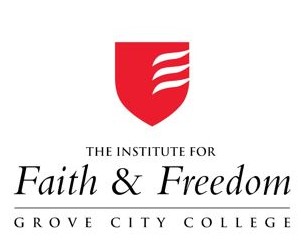Why Not to “Follow Your Heart”

By Diane Medved, Ph.D.
It could be that “follow your heart” is the most destructive piece of advice parents, rom-coms and love songs ever dispensed. “Follow your heart” can be blamed for the divorce skyrocket in the late 1970s that now leaves adult children of split families skittish to commit. It justifies hurting others, reneging responsibility and, worst of all—serving in-the-moment feelings rather than long-term goals and worthwhile projects that pay off only down the line.
The “follow your heart” mantra came into vogue when baby-boomers, offered a privileged life denied their parents by depression and war, internalized a sense of entitlement. They reveled in “looking out for number one,” the title of a 1977 best-seller by Robert Ringer.
Boomers’ hippy, hedonistic philosophy eroded and then replaced their parents’ ethic of “do your duty.” When World War II required everyone’s sacrifice, duty came first, feelings second. For their bravery, they earned the title “The Greatest Generation.” Their children reversed priorities, becoming “The Me Generation,” and a selfish orientation continues to prevail.
But as my husband Michael Medved describes in his new book The American Miracle: Divine Providence in the Rise of the Republic, our country was founded on values that put God, community and family before personal comfort. A series of bizarre events that allowed America to begin, flourish and expand convinced the founders not that they were brilliant leaders, but that they were instruments in the hand of a Higher Power.
Duty is the basis of reliability—showing up at work on time, taking care of aging parents, paying taxes—even when you’d rather be doing or spending on something fun. Duty fuels compassion, and both motivate altruism; we give to charitable causes and needy people even when we could use the money ourselves.
In my new book Don’t Divorce: Powerful Arguments for Saving and Revitalizing Your Marriage, I describe how favoring “follow your heart” over “do your duty” vastly affects marriage. Now, with marriage vows commonly a sentimental declaration of love rather than a solemn oath to remain “for better, for worse, for richer, for poorer, in sickness and in health, until death do us part,” the silent assumption is that if the relationship sours, “there’s always divorce.” I urge couples in a tough patch to look long-term at the consequences of a split, especially on children; to enter marriage as a “family project” rather than as a source of continually good feelings for the spouses.
Gerontologist Karl Pillemer of the Legacy Project at Cornell University documented the life-lessons of long-married elderly Americans, foremost among them that stubborn commitment to marriage vows is worth it. Diane, an attractive African-American woman advises, “Go into it thinking you’re going to make it, be the best marriage ever. I listen to my grandchildren, their friends—they talk about marriage like it’s not supposed to last, but I feel they have to look at it as something they’re going to make last.”
Two studies showed that among unhappily married couples who stuck it out, two-thirds in one study, and three-fourths in the other described themselves as happily, or very happily married five years later. And the ones most unhappy at first measurement reported they were most happy five years later. Consciously honoring your marital commitment rather than “following your heart” can get you past difficulties, especially if you know they’re likely to improve with time, changes in behavior or counseling. And placing your duty to your spouse above the allure of others or competing activities like work—even when the siren songs of excitement or career stardom call—will bring irreplaceable rewards you can earn only through constancy.
We need to intentionally teach our children to “do their duty” before “following their hearts” not only to improve their chances for long term marriage later in life, but to encourage patience and kindness, two qualities sometimes neglected in the push to promote self-esteem. When googling anything immediately gives you answers, and Amazon can deliver whatever you desire in two hours, we lose the sensitivity to hold the door for those behind us, or rise from our bus seats for the aged or infirm. Parents do their children a favor when they call out rude and inconsiderate behavior, asking, “was that kind?” They reinforce patience just by repeating “patience is a virtue.”
Phyllis Murray, a career military secretary, taught her six children this maxim: “Do what you ought, not what you want.” Feelings are urgent and powerful, but they’re mercurial and can lead us to behavior we later regret—something the fundamental Jewish prayer called “The Shmah” reminds. By deliberately citing the wisdom of elders, and biblical and ethical sayings, we can access guidelines that never fail. “Following your heart” is wonderful; every person should explore and enjoy his passions—when they’re shaped by “doing your duty.”
###
Diane Medved, Ph.D. is a psychologist and author of six books including Don’t Divorce: Powerful Arguments for Saving and Revitalizing Your Marriage (2017). She’s married 32 years to syndicated radio host and author Michael Medved.





















